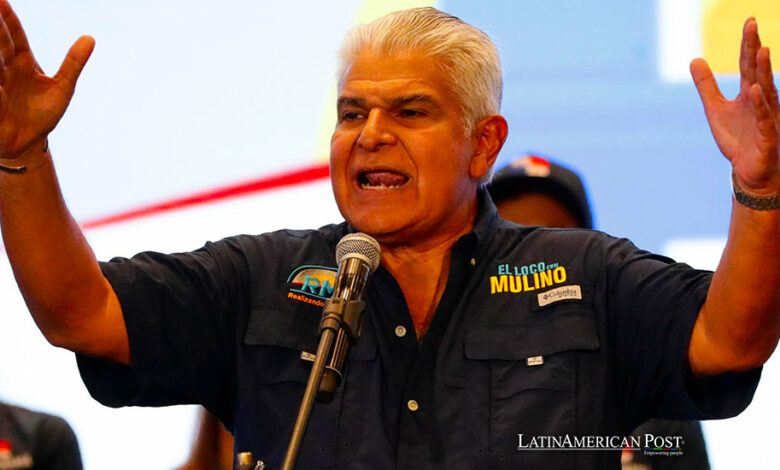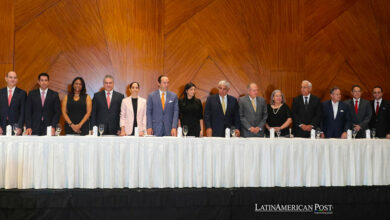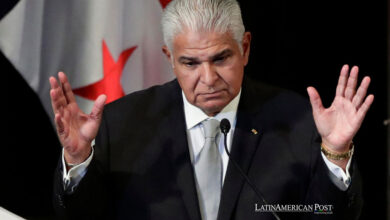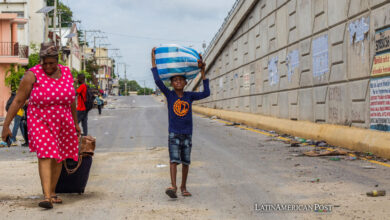José Raúl Mulino: Panama’s Controversial Path Forward

Raúl Mulino, an influential figure in Panama’s political landscape, is set to become its next president amidst legal turmoil and promises of economic resurgence, echoing the contentious tenure of his mentor, Ricardo Martinelli.
In a dramatic twist in Panama’s political saga, José Raúl Mulino, the former Security Minister, stands on the cusp of the presidency as the electoral count winds down. His ascent comes unexpectedly after replacing Ricardo Martinelli, a former president (2009-2014) convicted of corruption, who is now seeking asylum in the Nicaraguan Embassy in Panama. Mulino has vowed to revive the “good times” witnessed under Martinelli’s administration despite the legal shadows that loom over it.
Panama’s Economic Revival
“Panama will economically shine again as we did during Martinelli’s government,” Mulino repeatedly stated during his vigorous electoral campaign. Following a dramatic legal battle, the Supreme Court of Justice confirmed his candidacy just two days before the general elections. On March 5, Mulino was officially named the presidential candidate of the “Realizando Metas” (RM) party after the Electoral Tribunal disqualified Martinelli following his sentencing to over ten years in prison for money laundering.
Amid the complexities of Panama’s legal and political framework, the Electoral Tribunal decided that Mulino would replace Martinelli on the RM and Alianza party ballots, a constitutional decision upheld by the Supreme Court. Known for his firm character and concise speech, Mulino projects himself as capable of reinstating economic growth and ensuring “Chen Chen”—slang for money in the pockets—returns to the Panamanian people.
Despite numerous corruption cases linked to Martinelli and a reputation for fiscal imprudence, his administration did see Panama emerge as the fastest-growing economy in the region, achieving milestones like the first Metro in Central America. Mulino now proposes the construction of the “Crazy Train to David,” a high-speed rail from Panama City to the western province of Chiriquí, aiming to dramatically boost tourism and the logistics sector.
Mulino, a lawyer and former department minister, earned the nickname “Stalin Mulino” due to his physical resemblance to the Soviet dictator. He became a popular figure in the polls among eight presidential contenders, sometimes leading comfortably and at other times neck and neck with his closest rivals. He graduated in Law and Political Sciences in 1982 from the Universidad Santa María La Antigua (USMA) and later earned a Master’s in Maritime Law from Tulane University, USA.
Starting his career in 1988, Mulino co-founded the law firm Fábrega, Molino & Mulino, which he left in 2015. He played a significant role in the Civic Crusade that helped topple Manuel Antonio Noriega’s dictatorial regime in 1989, after which he joined the government of Guillermo Endara as Deputy Minister of Foreign Affairs, eventually becoming the head of the department.
Mulino’s tenure has not been without controversy. Appointed Minister of Government and Justice by Martinelli in 2009, he later headed the Public Security Ministry, where he faced criticism for his handling of the Bocas del Toro worker protests in 2010, which resulted in two deaths, numerous injuries, and arrests. In 2014, he was implicated in a corruption scandal involving the Italian company Finmeccanica over alleged kickbacks from a radar purchase, although the charges were eventually dismissed in 2017.
Promises and Setbacks
Mulino lost the Cambio Democrático (CD) primary in 2018 to Rómulo Roux, who also ran for president in the recent elections. Despite these setbacks, Mulino has pledged to assist Martinelli “as per the law” if he comes to power, following the current government’s denial of a safe conduct pass for Martinelli to travel to Nicaragua.
Also read: Trial Commences for Panama Papers Money-Laundering Case
As José Raúl Mulino stands poised to take the helm of Panama, his presidency promises to be one of reclamation—of both Panama’s economic vibrancy and its fraught political legacy. With pledges to reinstate the prosperity of the Martinelli years, Mulino’s administration will undoubtedly be scrutinized for its adherence to legal norms and ability to navigate the complex waters of Panamanian politics without succumbing to the shadows of its past.





